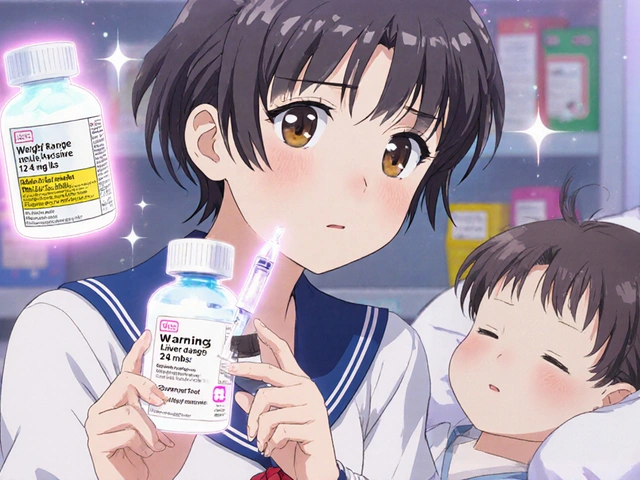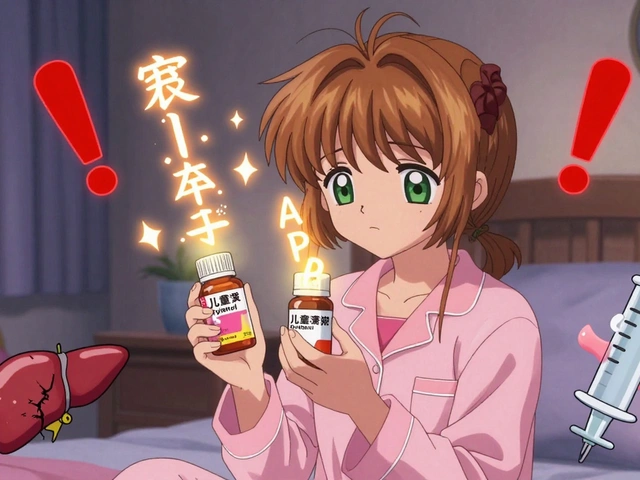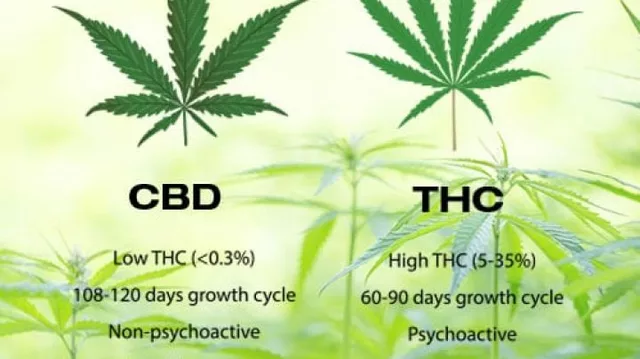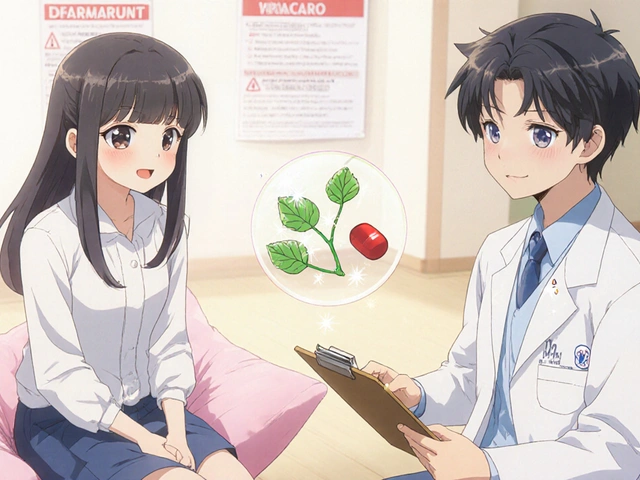Exploring the Link Between Psychotic Depression and Schizophrenia
Psychotic depression, sometimes referred to as major depressive disorder with psychotic features, is a serious mental health condition that is characterized by a combination of severe depression and psychotic symptoms, such as hallucinations and delusions. Schizophrenia is a mental disorder that is characterized by disorganized thinking, delusions, hallucinations, and social withdrawal. It is not uncommon for individuals with psychotic depression to also experience symptoms of schizophrenia, leading to the question of whether psychotic depression can turn into schizophrenia.
What Is Psychotic Depression?
Psychotic depression is a mental health condition caused by a combination of severe depression and psychotic symptoms, such as delusions, hallucinations, and feelings of paranoia. The intensity of the depression can range from mild to severe. Individuals with psychotic depression often experience feelings of hopelessness and despair, have difficulty concentrating, and trouble sleeping. They may also experience problems with their memory and have difficulty making decisions.
What Is Schizophrenia?
Schizophrenia is a mental disorder that is characterized by disorganized thinking, delusions, hallucinations, and social withdrawal. People with schizophrenia often struggle to make sense of their thoughts and feelings, and they may not be able to think clearly or focus on tasks. They may also experience difficulty in understanding and responding to the emotions of others. Symptoms of schizophrenia typically appear in early adulthood, although they can develop at any age.
Can Psychotic Depression Turn Into Schizophrenia?
There is no clear answer to this question, as the link between psychotic depression and schizophrenia is not well understood. Some research suggests that individuals with psychotic depression are more likely to develop schizophrenia than those without the condition. However, it is not known whether psychotic depression actually causes schizophrenia or if the two conditions simply share common risk factors.
It is important to note that psychotic depression and schizophrenia are two separate conditions, and one does not necessarily lead to the other. If you or someone you know is struggling with psychotic depression, it is important to seek professional help as soon as possible. A mental health professional can provide treatment and support to help manage the symptoms of psychotic depression and reduce the risk of developing schizophrenia.
How to Recognize the Signs of Psychotic Depression and Schizophrenia
Psychotic depression is a rare form of depression that is characterized by extreme sadness and the presence of psychotic features, such as delusions and hallucinations. It can be difficult to recognize the signs of psychotic depression, as they may be quite similar to the signs of schizophrenia. It is important to understand the difference between the two in order to get the right diagnosis and treatment.
The most common symptom of psychotic depression is a deep sense of sadness and despair. This sadness is often accompanied by feelings of guilt and worthlessness. Other common symptoms include changes in sleep patterns, appetite, and energy levels. People may also experience hallucinations and delusions, which can be very frightening. They may feel like they are being watched or followed, or they may become paranoid and suspicious of others.
The symptoms of schizophrenia can also be difficult to recognize. People with schizophrenia may experience hallucinations, delusions, and disorganized thinking. They may also have difficulty expressing their emotions and may appear very withdrawn. Other common symptoms include difficulty with basic activities, such as bathing or grooming, and difficulty performing daily tasks.
It is important to remember that both psychotic depression and schizophrenia are serious mental illnesses and require treatment. If you or someone you know is exhibiting any of the signs mentioned above, it is important to seek help right away. A mental health professional can help to diagnose the illness and provide treatment options.
It is also important to remember that psychotic depression and schizophrenia are not the same thing. They are different illnesses and require different treatments. If you or someone you know is exhibiting signs of either one, it is important to seek help as soon as possible.
The Role of Genetics in the Development of Psychotic Depression and Schizophrenia
Psychotic depression and schizophrenia are two different mental health disorders that can have similar symptoms. This often leads to confusion about what is causing the symptoms and if one disorder can turn into the other. To better understand this, it is important to look at the role of genetics and how it can play a part in the development of these two disorders.
Genetics and Psychotic Depression
It is believed that genetic factors have a significant influence on the development of psychotic depression. Studies have shown that the children of parents with the disorder are more likely to develop it as well. Additionally, genetic testing has revealed that certain genes are over-expressed in individuals with psychotic depression. These genes are related to neurotransmitters that are involved in the regulation of mood, which suggests that they may be involved in the development of the disorder.
Genetics and Schizophrenia
Schizophrenia is also believed to be highly influenced by genetic factors. Research has identified certain genes that are associated with an increased risk of developing the disorder. Additionally, certain environmental factors, such as stress, may trigger the expression of these genes and increase the risk of developing schizophrenia. It is also important to note that the risk of developing schizophrenia increases if other family members have the disorder.
Can Psychotic Depression Turn Into Schizophrenia?
The short answer is that it is possible, although it is not a common occurrence. It is important to note, however, that psychotic depression and schizophrenia share some similar symptoms, such as hallucinations and delusions. Therefore, it is important to be aware that if these symptoms become more severe, it could be an indication that the disorder is shifting from psychotic depression to schizophrenia. In these cases, it is essential to seek professional help to ensure that the disorder is properly diagnosed and treated.
Conclusion
Genetics play a significant role in the development of both psychotic depression and schizophrenia. Research has identified certain genetic factors that are associated with an increased risk of developing both disorders. Additionally, environmental factors can trigger the expression of certain genes and increase the risk of developing either disorder. While it is possible for psychotic depression to turn into schizophrenia, it is not a common occurrence and it is important to be aware of the warning signs. If you are concerned that your symptoms may be shifting from one disorder to the other, it is important to seek professional help to ensure that you receive the appropriate diagnosis and treatment.
The Impact of Psychotic Depression on the Risk of Developing Schizophrenia
Psychotic depression is a severe form of depression that has been linked to an increased risk of developing schizophrenia. While the exact cause of this connection is not yet known, there is evidence that suggests that this type of depression can lead to the development of this mental health condition over time. It is important to understand how psychotic depression can affect the risk of developing schizophrenia in order to better understand and provide treatment for those affected.
How Psychotic Depression Can Affect The Risk Of Developing Schizophrenia
Studies have shown that having a history of psychotic depression is a major risk factor for developing schizophrenia. It is believed that having this type of depression can cause changes in the brain that can lead to the development of the condition. Psychotic depression can also increase the risk of developing schizophrenia by making it more difficult to manage the symptoms of the condition. People who suffer from psychotic depression may have difficulty with their cognition, attention, and decision-making, making it more difficult to manage the symptoms of schizophrenia.
The Treatment Of Psychotic Depression
In order to reduce the risk of developing schizophrenia, it is important to treat psychotic depression. Treatment for this type of depression typically includes a combination of medications and therapy. Medications such as antidepressants and antipsychotics can help to reduce the symptoms of psychotic depression, while therapy can help to address the underlying causes of the condition and provide coping strategies for dealing with the symptoms. It is important to note that treatment for psychotic depression can take some time, so it is important to be patient and work with a mental health professional to find the best treatment plan for you.
Conclusion
In conclusion, psychotic depression is a severe form of depression that can increase the risk of developing schizophrenia. It is important to understand how this type of depression can affect the risk of developing schizophrenia in order to provide the best treatment for those affected. Treatment for psychotic depression typically involves a combination of medications and therapy, and it is important to be patient and work with a mental health professional to find the best treatment plan for you.
Treatments for Managing Psychotic Depression and Schizophrenia
Psychotic depression and schizophrenia are both severe mental illnesses that require medical intervention and treatment. While there are similarities between the two conditions, there are also significant differences. This article will discuss the treatments for managing both psychotic depression and schizophrenia.
Treatments for Psychotic Depression
Psychotic depression is a severe form of depression that is characterized by a loss of contact with reality. It is often accompanied by hallucinations, delusions, and other symptoms. Treatment for psychotic depression usually includes a combination of medication and psychotherapy. Antidepressants are the most commonly prescribed medications for this condition, and they can help to reduce symptoms such as sadness, fatigue, and suicidal thoughts. Psychotherapy can also be very helpful in managing psychotic depression, as it can help to identify and address underlying issues that may be contributing to the condition.
Treatments for Schizophrenia
Schizophrenia is a serious mental illness that is characterized by a breakdown in the relationship between thought, emotion, and behavior. It is often accompanied by hallucinations and delusions. Treatment for schizophrenia usually involves a combination of antipsychotic medications and psychosocial interventions. Antipsychotics can help to reduce symptoms such as hallucinations and delusions, while psychosocial interventions can help to improve social functioning and reduce the risk of relapse.
Can Psychotic Depression Turn Into Schizophrenia?
While psychotic depression and schizophrenia can have similar symptoms, it is important to note that they are two distinct illnesses and that one does not necessarily lead to the other. There is no evidence that psychotic depression can lead to schizophrenia, and it is possible to have one without the other. However, it is important to seek medical help if you are experiencing both psychotic depression and schizophrenia, as the two conditions can be treated more effectively when both are present.
If you are experiencing both psychotic depression and schizophrenia, it is important to talk to your doctor about the best course of treatment for you. With the right combination of medications and psychosocial interventions, it is possible to manage both conditions effectively. With the right help, you can find relief from the symptoms of both psychotic depression and schizophrenia.









Rene Lacey March 14, 2023
The boundary between psychotic depression and schizophrenia has haunted clinicians for decades.
The mind flirts with delusional scenery while drowning in despair, making diagnostic labels blurry.
From a phenomenological perspective, both conditions share a core of reality distortion, yet their trajectories diverge in subtle ways.
The depressive affect in psychotic depression is typically anchored in pervasive hopelessness, whereas schizophrenia often presents with a flattening of affect.
Neurobiologically, dysregulation of dopaminergic pathways appears in both, but the downstream cascade differs according to genetic predisposition.
Longitudinal studies suggest that a minority of patients with psychotic depression transition to a schizoaffective or schizophrenic profile over time.
This conversion is not inevitable; early, aggressive treatment can arrest the march toward a more fragmented psychosis.
Psychopharmacology that combines antidepressants with antipsychotics provides a bridge that stabilizes mood while tempering hallucinations.
Cognitive‑behavioral interventions tailored to reality testing can empower patients to differentiate internal fantasies from external reality.
Family education also plays a crucial role, as caregivers learn to recognize early warning signs of thought disorganization.
Genetic studies reveal overlapping risk loci, yet epigenetic modifiers and environmental stressors shape the final phenotype.
In practice, clinicians must remain vigilant for emergent negative symptoms such as social withdrawal that may herald a shift.
Monitoring tools like the PANSS can flag subtle changes in thought patterns that are not captured by depressive scales alone.
Ultimately, the question of causality may be less important than the pragmatic goal of preventing functional decline.
By treating psychotic depression as a dynamic condition rather than a static label, we open the door to personalized care pathways.
So, while the specter of schizophrenia looms for some, it is not a deterministic fate for every individual battling psychotic depression.
johnson mose March 15, 2023
The brain doesn’t draw hard lines between disorders; it paints in shades of gray.
When depressive despair intertwines with hallucinations, the symptom tapestry becomes intricate.
Research hints at shared genetic threads, yet environmental loom often dictates the final pattern.
Clinicians should therefore keep a flexible diagnostic net rather than a rigid trap.
Early intervention can pivot the trajectory away from a full‑blown psychotic break.
Charmaine De Castro March 15, 2023
Great overview! Just a reminder that therapy isn’t one‑size‑fits‑all.
Combining medication with supportive counseling often yields the best outcomes.
Don’t forget to involve family members in the treatment plan.
Early detection can make a world of difference.
Mark Mendoza March 15, 2023
👍 Absolutely, the combo of antidepressants and antipsychotics can be a lifesaver. 😌 It’s like having both a shield and a sword against the storm of symptoms. Keep an eye on side‑effects, though; they can sneak up. Consistent follow‑ups are key! 🧠
Dan Tourangeau March 16, 2023
Spot on, the family’s role is often underestimated. Clear communication can prevent many crises.
Bernard Valentinetti March 16, 2023
Indeed, the literature, though sparse, does suggest, albeit tentatively, a possible, albeit rare, transition, especially, when, comorbid stressors, exacerbate the underlying, neurochemical imbalance.
Kenneth Obukwelu March 16, 2023
The philosophical underpinnings of mental illness echo the ancient debate of nature versus nurture.
In this modern saga, both forces conspire, weaving a tapestry that can shift from depressive hues to schizophrenic shadows.
Thus, vigilance is not just clinical, it’s existential.
Josephine hellen March 16, 2023
What a hopeful perspective! Even when the clouds of psychosis gather, there’s always a silver lining if we stay proactive.
First, maintaining a robust medication regimen can stabilize the neurochemical storm.
Second, psychotherapy that focuses on reality testing empowers patients to differentiate delusional thoughts from genuine concerns.
Third, peer support groups provide a safe space to share experiences without stigma.
Fourth, lifestyle interventions-regular exercise, balanced diet, and adequate sleep- fortify the brain’s resilience.
Fifth, ongoing research into neuroplasticity offers promising avenues for future treatments.
All these pieces, when combined, create a mosaic of recovery that can prevent the dreaded slide into chronic schizophrenia.
Remember, each person’s journey is unique, but with comprehensive care, the odds can be tipped in favor of healing.
Stay hopeful, stay engaged, and never underestimate the power of early, tailored intervention.
Ria M March 17, 2023
Whoa, the drama of minds colliding! When your thoughts start playing hide‑and‑seek with reality, it’s like watching a fireworks show in slow motion.
But hey, catching those sparks early can keep the explosion from turning into a full‑blown inferno.
Keep the meds steady, the therapy rolling, and the support crew close-otherwise, you’re just feeding the chaos.
Michelle Tran March 17, 2023
Interesting read.
Caleb Ferguson March 17, 2023
Adding to the family point, it’s crucial to set clear boundaries early on.
This prevents codependency and keeps the therapeutic process on track.
Delilah Jones March 18, 2023
Your over‑punctuated comment could have used a bit more clarity.
Precise language helps clinicians make better decisions.
Let’s keep the focus on evidence, not punctuation.
Pastor Ken Kook March 18, 2023
Good points! 😊 Remember, consistency in appointments is key. 🙏
Jennifer Harris March 18, 2023
I’m glad the optimism shines through.
It’s essential to maintain hope, even when the science feels dense.
Northern Lass March 18, 2023
Whilst the article presents a balanced perspective, one must not overlook the methodological limitations inherent in much of the cited research.
The prevalence figures are often derived from convenience samples rather than epidemiologically sound cohorts.
Consequently, the purported link between psychotic depression and schizophrenia may be overstated.
A more rigorous meta‑analysis, stratifying by diagnostic criteria, is requisite before drawing definitive conclusions.
Until such data are forthcoming, clinicians should exercise caution in extrapolating these findings to practice.
Johanna Sinisalo March 19, 2023
Thank you for the thorough critique.
We appreciate the call for higher‑quality data and will incorporate these suggestions into future revisions.
Ensuring rigorous methodology ultimately benefits patients.
OKORIE JOSEPH March 19, 2023
Stop hiding behind “methodology” excuses! The real issue is that clinicians keep prescribing the same cocktail without real outcomes.
If you want change, push for actionable protocols now, not just talk about better studies.
Patients deserve decisive action, not endless debate.